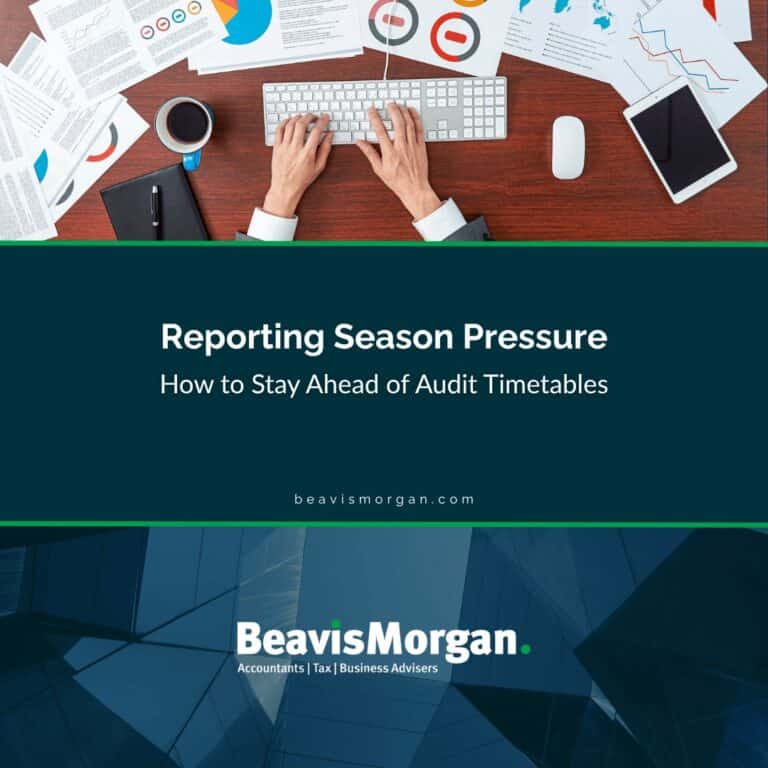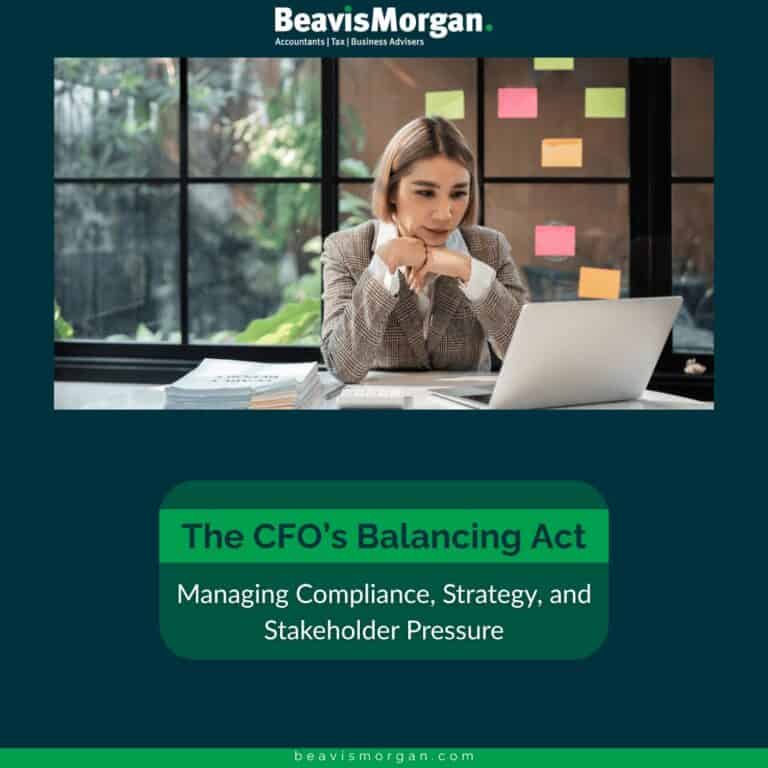The UK’s hospitality industry, a pillar of local economies and a major national employer, is facing mounting financial challenges in 2025. Rising operational costs, regulatory changes, and shifting consumer habits are putting significant strain on pubs, restaurants, and hotels across the country.
Beavis Morgan, together with our group company Moorfields Advisory, works closely with businesses in the hospitality sector and understand the unique pressures currently facing owners and operators. In this article, we explore the key developments impacting the sector and offer practical advice to help businesses strengthen their resilience during these turbulent times.
New Costs Hitting the Sector Hard
One of the most significant changes affecting hospitality businesses is the lowering of the threshold for employer National Insurance Contributions (NICs).
From 6 April 2025, the NIC threshold for employers will drop from £9,100 to £5,000, pulling an estimated 774,000 hospitality workers into NIC liability.
For a sector heavily reliant on part-time, lower-paid workers, this change represents a major financial blow. Industry estimates suggest it will add around £1 billion in extra costs at a time when margins are already squeezed.
Alongside this, the sector is absorbing a £2.4 billion rise in annual costs, driven by higher wages, supplier price increases, and utility bills. The combined effect risks further destabilising a sector still recovering from pandemic losses.
Concerns Over Growth, Jobs, and Stability
Industry leaders have raised the alarm about the potential consequences of these changes.
Kate Nicholls, CEO of UKHospitality, has urged the government to consider introducing a lower NIC rate for part-time workers to ease the burden. Without intervention, there are real fears that growth could stall, employment could fall, and business closures could escalate.
Large operators are already sounding warnings.
J D Wetherspoon, for example, has flagged that their annual labour costs will rise by £60 million, despite a positive 5% growth in like-for-like sales. Such pressures risk eroding profitability across the sector.
The hospitality sector has already witnessed a steady erosion of its footprint:
- In 2024, more than 400 pubs closed in England and Wales.
- The number of pubs fell below 39,000 for the first time on record.
The Wider Economic Impact
The financial strain on hospitality businesses doesn’t exist in isolation — it creates a domino effect throughout local economies.
Suppliers, landlords, and service providers all depend on a thriving hospitality sector. Closures lead to lost jobs, reduced consumer spending, and community decline.
At Beavis Morgan, we recognise that supporting hospitality businesses means supporting wider economic resilience.
Practical Steps for Hospitality Businesses
While the outlook is challenging, there are strategies businesses can adopt now to improve resilience and safeguard their future.
-
Conduct a Financial Health Check
- Review cash flow forecasts based on new cost assumptions.
- Prepare contingency plans for different trading scenarios.
- Identify and address financial vulnerabilities early.
-
Enhance Operational Efficiency
- Invest in technologies like contactless ordering, stock control systems, and automated payroll.
- Optimise staffing models to match peaks and troughs in demand.
- Introduce waste management initiatives to reduce costs.
-
Flexible Staffing Strategies
- Maintain a flexible workforce to adapt to customer trends.
- Offer varied shift patterns and roles to retain loyal staff while controlling overheads.
- Upskill teams to enhance productivity and service standards.
-
Maximise Reliefs and Incentives
- Investigate all available government grants and business rates reliefs.
- Utilise capital allowances for technology and refurbishment projects.
- Explore green energy incentives if investing in energy efficiency.
-
Adapt to Changing Consumer Preferences
- Expand alcohol-free and low-alcohol drink offerings to capture the growing ‘mindful drinking’ trend.
- Tailor menus to reflect cost-conscious consumer habits.
- Emphasise quality and service to retain customer loyalty.
-
Engage Early with Stakeholders
- Negotiate terms with landlords, suppliers, and lenders.
- Keep open lines of communication to secure better terms and build support during lean periods.
What the Sector is Asking For
Business groups are urging the government to introduce sector-specific support, such as:
- Reassessing the NIC threshold reduction.
- Extending and enhancing business rates relief schemes.
- Offering a lower NIC rate for part-time and hospitality-specific roles.
While no new concessions were announced in the Spring Statement 2025, lobbying efforts continue — and it remains crucial for business owners to stay updated on potential policy shifts later in the year.
How Beavis Morgan and Moorfields Advisory Can Help
Together, we offer a full suite of services and bespoke advice to hospitality businesses to help navigate these challenging times.
Our services include, amongst others:
- Financial forecasting and business planning.
- Cash flow management.
- Corporate restructuring and turnaround support.
- Tax planning and advisory services tailored for hospitality businesses.
We work alongside our clients to not only stabilise immediate operations but also to build long-term resilience and growth potential.
Final Thoughts: Strength in Preparation
The hospitality sector is a vital contributor to the UK economy, employing millions and enriching communities. However, 2025 will be a year where early action, strong financial management, and strategic flexibility will make the difference between thriving and struggling.
If your business needs support, now is the time to act.
Contact your usual Beavis Morgan partner, or email info@beavismorgan.com in the first instance for a confidential discussion on how we can help protect your business and plan for a sustainable future.





